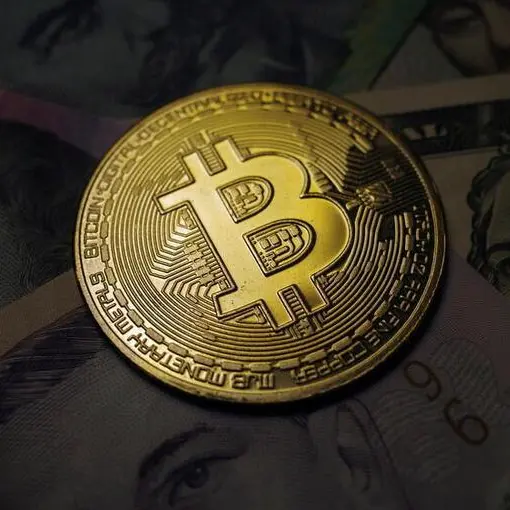PHOTO
Blockchain Research Institute Africa Making Strides in Levelling Financial Playing field
Africa has an enormous cash and informal trade economy, however, at the root of many challenges that Africa currently faces is financial exclusion. An alarming 900 million are unbanked in Africa due to numerous challenges, including accessibility to banks, occupation barriers, financial limitations, gender issues, and a liquidity crunch. The incumbent financial system (FS) leans toward the urbanized, serving a limited uniform people group and has contributed to slowing down inclusion in the past. It requires uniformity to be successful; those who do not fit the mould that the financial system is designed to serve, struggle to save, participate in the economy, and generate wealth.
It has been challenging to make this model work on a continent so diverse. Africa needed a financial system that could bridge its economic and cultural richness and be successful because of it. Africa needed a new economic infrastructure designed for Africa.
While the popularity of blockchain began to rise in 2009, some of the conversations happening on the topic of blockchain do suggest that the concept of the new technology may still be perplexing to many. It was first introduced as a peer-to-peer network transferring value that is built on the internet and formed part of the Bitcoin proposal. However, this new technology has changed the world as we know it and it is clear that blockchain technology is the answer to Africa’s financial needs. Exactly the kind of disruption needed to even the playing field.
Commenting on how blockchain technology can bridge the financial gap, Ian Putter, Head of Blockchain COE at Standard Bank Group, and the Founder & Regional Director of Blockchain Research Institute (BRI) Africa says, “Africa needs a win-win environment, not a winner-takes-all”.
Many have heard the reference that Africa “leapfrogged” past the fixed telecom phase and moved straight to mobile surpassing the adoption rate of the US and Europe as early as 2013. The term “leapfrog” suggests that Africa skipped the steps of a predetermined trajectory. However, the mobile business model was more successful in the African context than the landline because it can bridge economic diversity and allow for a unifying experience across borders. Much like the incumbent FS, the fixed telecom business model was not localized for the African context and had low adoption rates.
On the contrary, following the mobile trajectory, Africa grabbed onto the blockchain promise because it does not demand uniformity to be successful. Blockchain’s decentralized economy integrates hierarchical economical systems into a single economically aligned class called community. In simple terms, everyone can participate, and all who participate are not only consumers but contributors who are economically incentivized. Although blockchain technology is not an African innovation, it caught on like wildfire to the extent that Africa has been given the title ‘the crypto continent’.
The Blockchain Research Institute (BRI) Africa is researching the blockchain opportunity and how it can fill the real market need in Africa. This is being achieved through the facilitation of syndicated support, education, and research that benefits companies moving from Web2 to Web3, with the upliftment of Africa at the heart of every step. According to the African Blockchain Report 2021, $127 million of venture capital was raised by blockchain companies in Africa of which 95% of funding went to Nigeria, Seychelles, Kenya, and South Africa.
These 4 countries have now earned the respectable title “The Big 4”. Fintech as a category represented a significant 53% of blockchain venture funds, giving Africa hope in the soon actualization of an inclusive financial norm. Although human behaviour is said to evolve slower than innovation, enabled by rapidly increasing smartphone penetration rates, Africa’s crypto adoption growth rate between 2021 and 2022 was 2467%. Furthermore, digital assets now have regulator’s attention in South Africa after the Financial Sector Conduct Authority (FSCA) defined crypto assets as “digital representations of value” recognizing them as financial products that can be used in trade for payments and investment on the 19th of October 2022. This marks an evolution in crypto education and adoption as financial advisors may formally advise their clients on crypto investments.
It is no longer a matter of what blockchain technology can do, but what it is already doing.
Africa has seen the successful development and launch of Nigeria’s central bank digital currency (CBDC), the eNaira. The Central Republic of Africa (CAR) is the second country in the world to have adopted Bitcoin as a legal tender. Coronet – an African company whose blockchain enables African retailers to source quality authenticated products from vetted manufacturers, has enabled transparency and accountability in the supply chain. Among the use cases for fintech in Africa are peer-to-peer (P2P) payments, widely used to enable the informal and small business ventures at the beating heart of many African economies
Locally we already see communities adopt decentralised ledger technology (DLT) to build solutions for challenges they have otherwise not been able to overcome. In South Africa, the Grayton House school tokenized their student’s art into nonfungible tokens (NFTs) to fundraise for their scholarship program. Another fantastic example of blockchain’s ability to overcome Africa’s diverse economic challenges is an initiative called Bitcoin Ekasi. In the heart of Mossel bay, South Africa, young adults, shop owners, and consumers are being educated on decentralised finance and digital wallets, transforming the community as local kiosks and other retailers and service providers started accepting payments via cryptocurrencies to avoid cash theft and accommodate those who do not have a bank account but have access to a mobile smartphone and internet.
Africa is transitioning from Web2 to Web3 as Web3 is a system better designed for Africa. Adopting the new technology into existing businesses might be expensive and challenging at first, but it will be the difference between companies that will drive Africa forward and companies that will stay behind.
BRI Africa provides research about the application & implementation of blockchain technologies in the African context, to solve African problems, using input from a grass-root level. BRI Africa drives their research, pilot project/ use case facilitation through their ecosystem members, creating a community that facilitates pan-African peer-to-peer learning across verticals.
Interest in the BRI Africa organisation and the Web3 movement it supports is growing across the continent and globally. This speaks not only of an opportunity to rewrite the African narrative but an opportunity for businesses and investors to form part of this story. Blockchain technology is the infrastructure that is unifying Africa. “We want to rebuild Africa from the ground up with blockchain”, concludes Putter




















